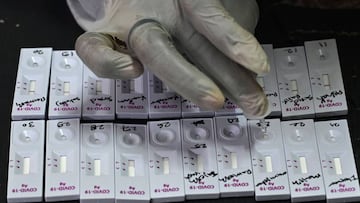Serum Institute of India halts Oxford Covid-19 vaccine trial
The trials of a Covid-19 vaccine candidate developed by Oxford University have been suspended due to the occurrence of a side effect in one of the participants.

The Serum Institute of India, which has been conducting human trials of the potential Covid-19 vaccine developed by Oxford University, has halted the study as per a notice from the Drug Controller General of India (DCGI).
News has emerged lately about the suspension of global human trials of the promising vaccine candidate being developed by Oxford University and AstraZeneca, after a volunteer participating in the trial in the UK suffered adverse effects and fell ill.
Trials to be suspended until further notice
After the Serum Institute CEO had announced earlier that trials in India won't be affected by the trial's pause and adverse effects in the UK, the organisation received a notification from the DCGI to suspend the trials being conducted until further instructions.
During the late-stage trials of the frontrunner vaccine candidate, a volunteering participant developed what's called myelitis, which affects and causes swelling of the spinal cord. This led the manufacturing company to immediately halt all trials until an independent committee reviews safety data.
Related stories
The Serum Institute of India has partnered with the coronavirus vaccine developers at the Jenner Institute of Oxford University in collaboration with the British-Swedish pharmaceutical company AstraZeneca. The Oxford coronavirus vaccine was considered to be the most promising Covid-19 vaccine candidate globally.
Some reports in India have suggested that the notification from the DCGI came late as the Serum Institute didn't clearly inform the authority of the adverse effects developed by the candidate in the UK during the trial.

